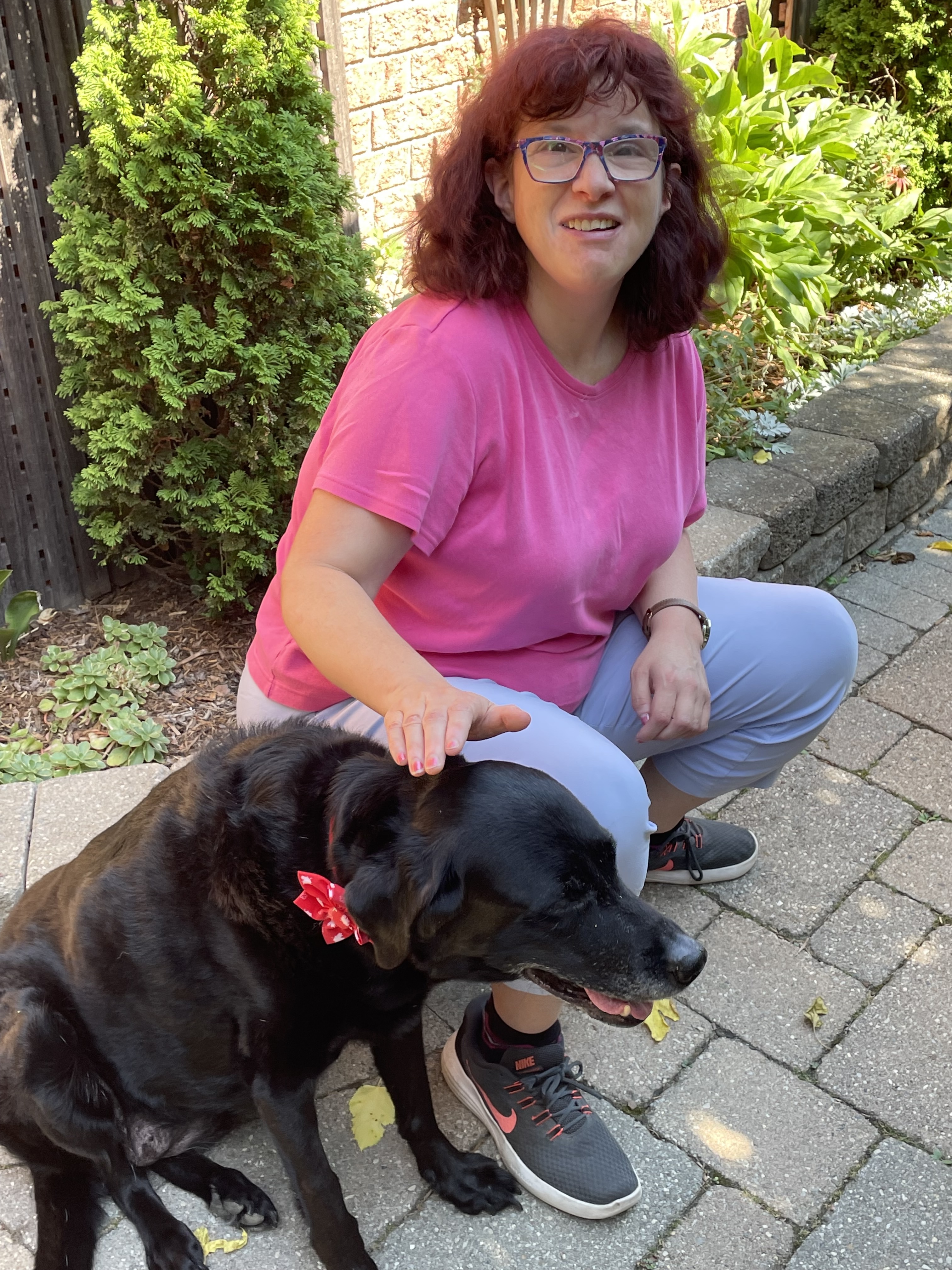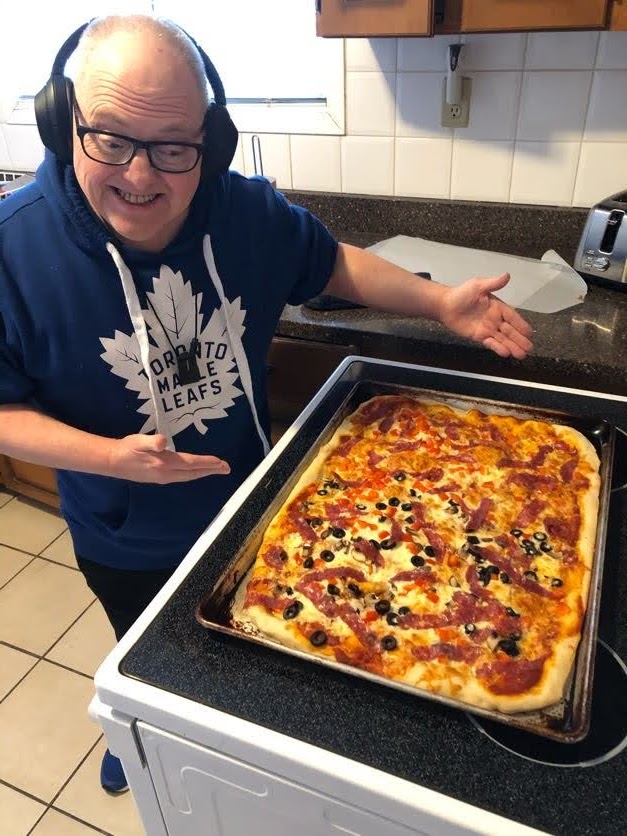
“We think about diversity more and more, but when we do, we think racial diversity, gender diversity, or physical disability. It’s just not top of mind to think about helping people with developmental disabilities” says Jenny Parisi, Director of Services and Quality Enhancement at Community Living Oakville (CLO), a United Way agency. Yet, says Jenny, a person with developmental disabilities is five times more likely to stay in a job than the rest of the population.
Community Living Oakville is dedicated to people with developmental disabilities. A not-for-profit, Community Living operates group homes with 24-hour support, as well as supported independent living with assistance a few hours a week. With CLO’s help, people with developmental disabilities live rich lives, with personal relationships, marriages, hobbies and jobs. Often this means a progression, from leaving their family homes to a group home at first, and then independent living, with working, paying their own bills, and pursuing a wide range of interests. “This has the potential to be a social investment that pays hard dividends,” says Jenny, who has devoted 20 years to working in this sector.
The goal is to make people able to be valuable, contributing members of society, included and integrated into the community. CLO's Explore employment programme supports 150 people, employed at Oakville Trafalgar Memorial Hospital, Mercedes Benz Oakville, Burger King, and in flower shops and other businesses, based on what the individual wants. One programme, "Project Search", helps make this happen. In Project Search, CLO partners with the Halton District School Board and Halton Healthcare to find and arrange internships for youth in their last year of high school who have developmental disabilities. Ben, who works in the mailroom at Oakville Trafalgar Memorial Hospital, has really added value with direct delivery of mail to each department. “There is also a “Campus Connections” partnership with Sheridan College. Students in their Developmental Service Worker programme volunteer with CLO, making it a two-way street.
At the same time CLO’s “Project Search” helps prepare people with developmental disabilities to get the education, internships and work habits they need to find meaningful work. “If not for Project Search I would have been at home doing nothing. I learned to work hard, be a team player, listen and ask questions and develop new skills. My family is very happy and proud of me,” says Justin, who is on his way to being a Medical Device Technician. “I learned about diversity and how to overcome difficulties which makes it easier for everyone to fit in. From the first day starting here I realized what a good opportunity this was for me,” said Julian. “I feel 100% that I will have a better future. Before, I felt stressed about coming here. I was scared about meeting new friends. I have other goals for myself now - I’m thinking of working in a music store.”
The key is to match client interests, talents and abilities with employer needs. “We are absolutely not looking for the sympathy hire,” emphasizes Jenny. "People supported through our Xplore employment programme have a lot to offer employers."
All of these services are offered free to people with developmental disabilities, and there is also a fee-for-service programme called XCEL, which helps them develop recreational life skills centred around their own interests, to help them have a full rich life with work, play, and social dimensions. Take Ulli, for example, a swimmer and bowler who was a 2013 Special Olympics “Athlete of the Year”, or Vanessa, who raised $850 by participating in the Terry Fox Run.

Before COVID-19, there was an after-school programme for 13 to 21-year-olds, but this operated a respite programme because of the uncertainty that plagued school operations during the pandemic. “That wasn’t the only thing affected,” says Jenny. “Our ‘Community Connect’ programme, for residents living independently, which let them meet at our building, had to be stopped. Day programmes were also shut down. And we had a major staff crisis because many of our staff have more than one employer, and the dangers of cross-infection meant they had to pick one bubble or another.”
“This meant major social isolation, as the people we support could not even visit their families, let alone congregate.” This is where the United Way relationship really came into its own for us. United Way supplied tablets during that period and were able to develop a successful virtual “Stay Connected” solution (now happily in-person again, as well as virtually). This was key for this vulnerable group, and the federal government and United Way came up with the money in a timely manner. “The United Way doesn’t base its decision on numbers alone. Yet it monitors what we do and holds us accountable.” Newly appointed Executive Director Alexandra Hoech Murray was behind this initiative.
“United Way is key to our effectiveness at all times, and that was even more evident during the pandemic,” says Jenny. You can help Community Living Oakville by donating to the United Way.
Many of us have charities we support for personal reasons. However, there is a wide variety of needs in our community. The United Way goes to great lengths to identify these needs and find and assist vital agencies with good processes to address them. United Way funds mean these agencies can spend more of their resources helping Oakville residents and less of them looking for money. As donors, we can’t know the best way to spread our donations around, but donations of all sizes from many Oakvilleans can be turned to their best effect through the United Way. And who knows when we, or someone close to us, will need help from one of these services. Our donations to the United Way ensure they will all be there for us if that day comes.